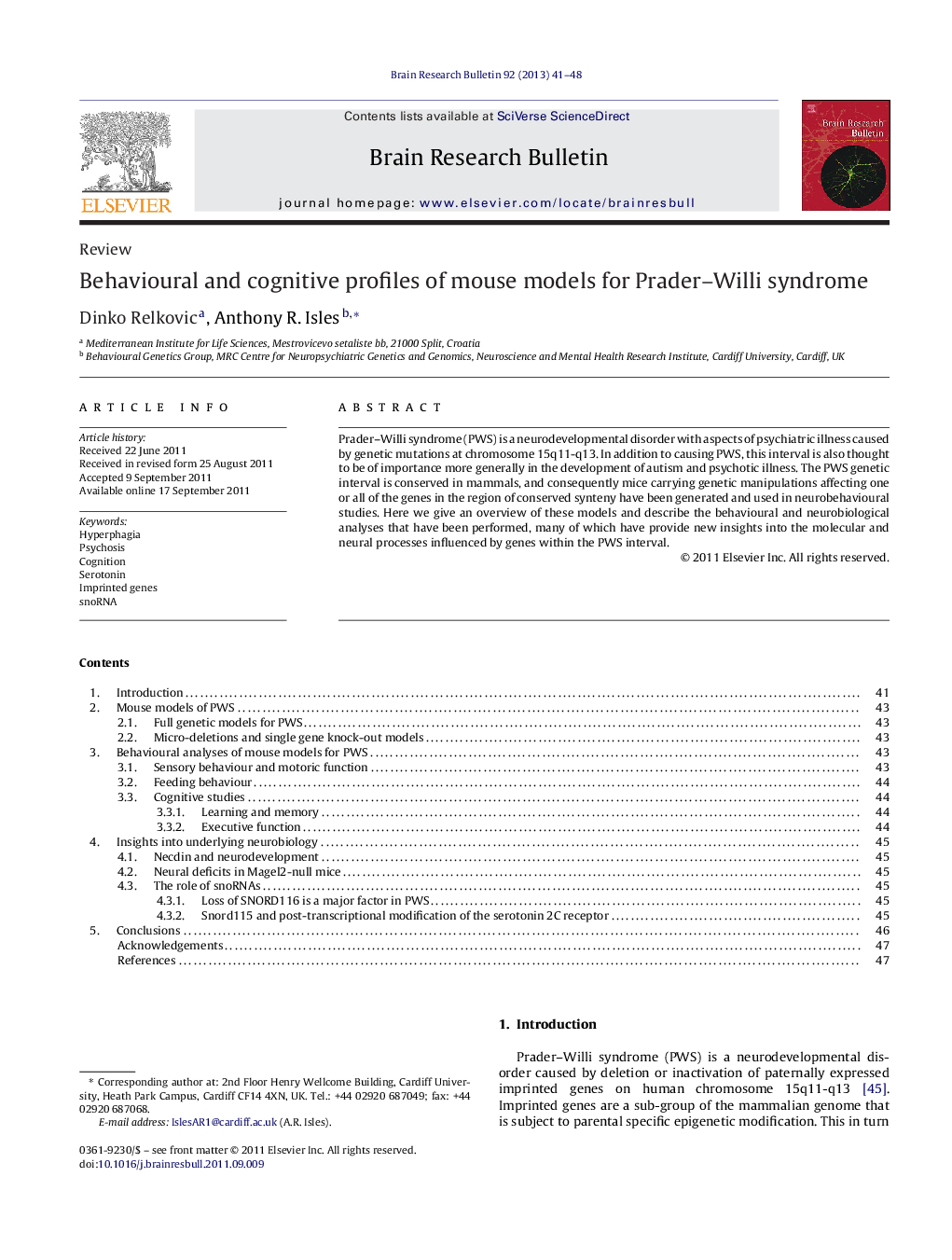| Article ID | Journal | Published Year | Pages | File Type |
|---|---|---|---|---|
| 6261814 | Brain Research Bulletin | 2013 | 8 Pages |
Prader-Willi syndrome (PWS) is a neurodevelopmental disorder with aspects of psychiatric illness caused by genetic mutations at chromosome 15q11-q13. In addition to causing PWS, this interval is also thought to be of importance more generally in the development of autism and psychotic illness. The PWS genetic interval is conserved in mammals, and consequently mice carrying genetic manipulations affecting one or all of the genes in the region of conserved synteny have been generated and used in neurobehavioural studies. Here we give an overview of these models and describe the behavioural and neurobiological analyses that have been performed, many of which have provide new insights into the molecular and neural processes influenced by genes within the PWS interval.
⺠We review behavioural studies of mouse models for Prader-Willi syndrome. ⺠Mouse models discussed include those lacking expression of single and multi-genes. ⺠The review covers aspects of feeding behaviour, learning and executive control. ⺠Mouse models are particularly useful for analysing underlying neural bases.
